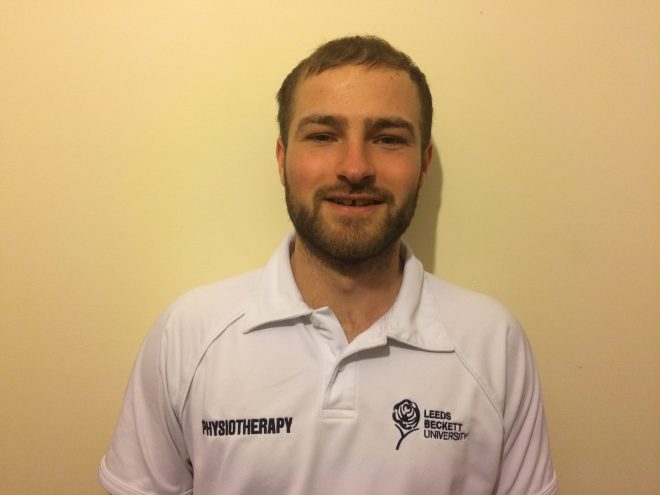
Rory McIntyre
“Those who fail to learn from history, are doomed to repeat it”, so the saying goes. But what about learning from the present?
A former Naomh Columba player is looking for males playing Gaelic this season, who are 18 or over, to fill out a questionnaire to help better understand burnout and overuse injuries in GAA players.
Rory McIntyre is a final year Masters student at Leeds Beckett University. He grew up playing underage football for Naomh Columba, and he also played school football for Coláiste na Carraige.
“After hearing all of the talk about burnout, I thought I would find out more about it and I’m excited to have the opportunity to link my current studies with my interest in Gaelic football.
“The real aim is to try and get a clearer picture of the scale of the problem. Compared to other sports there aren’t too many studies out there about injuries in Gaelic Football,” he explained.
It’s easy to romanticise the sport – Gaelic footballers aren’t professional athletes, they’re not on a hundred grand a week, they don’t drop to the ground holding their face when someone comes within a few feet of them.
Most have to fit the busy schedule around a full-time job, a family, getting up early and getting home late after training or gym sessions. They put in the hard graft on and off the pitch, training multiple times a week, and they just get on with it. They just push through for the love of the sport, for the love of the community.
“There have been some great studies in the last few years, mostly involving county players. But some of these don’t really explain what they define as overuse injuries, and most studies class injury as something that stops you training or playing,” he said.
Anyone that has been near a football field however knows that quite a number of players continue to train and play week in, week out, despite the knocks.
“I’ve read so much in the last few years about burnout. Players being run into the ground. Many players training and playing for a handful of teams in the same year. Sometimes only having one night off a week, if that.
“A lot of the lads always seem to be playing for two school teams and two club teams at the same time, and a lot would be expected of them. Sometimes when communication was better you would get a night off training if you had a game with another team the next day, but often you’d be expected to take full part. I’m not trying to have a moan about it, I loved playing, and I totally understand that there’s no easy solution. Each manager is focused on their team doing as well as possible, and they need players to train together regularly to do that.
“For those playing at a higher level though who were on county development teams, and county vocational school teams, the possibility of the body getting the rest and recovery it needs seems to be getting smaller and smaller,” he said.
A talented musician and academic, Rory’s leaving cert year in Carrick was also his last last playing football as he moved to Glasgow to study Physiology and Sport Science. There is spent two of those years working in the academies of some of the Scottish Premiership teams, and learned a lot about injuries, and how to plan recovery into training.
“Growing up playing football, ‘physio’ was anything from someone spraying deep heat on you, to getting a massage. Turns out physiotherapy can help with musculoskeletal injuries, it can help you manage issues with your lungs like COPD, can help you recover after something serious like a stroke, and also with lots of other things like arthritis, cancer, chronic pain. The list goes on, there’s so much that physio can help with. And it works too. Instead of just giving someone a massage and sending them home, it educates patients about their conditions, empowers them and gives them the tools to manage their own health conditions.
“As part of my course, I’m doing a dissertation to try and get a clearer picture of the scale of the burnout problem. I’m using a relatively new questionnaire that a group of researchers in Oslo developed. It has been used and validated in several other sports, and because it includes those that play through their injuries, it should hopefully give a more accurate picture of the problem,” he said.
“We know that this problem is happening in Gaelic football. If we don’t learn anything from it, then it will repeat itself over and over,” he added.
If you’d like to help, please consider taking part in Rory’s study by visiting www.tinyurl.com/gaainjuries
Receive quality journalism wherever you are, on any device. Keep up to date from the comfort of your own home with a digital subscription.
Any time | Any place | Anywhere









